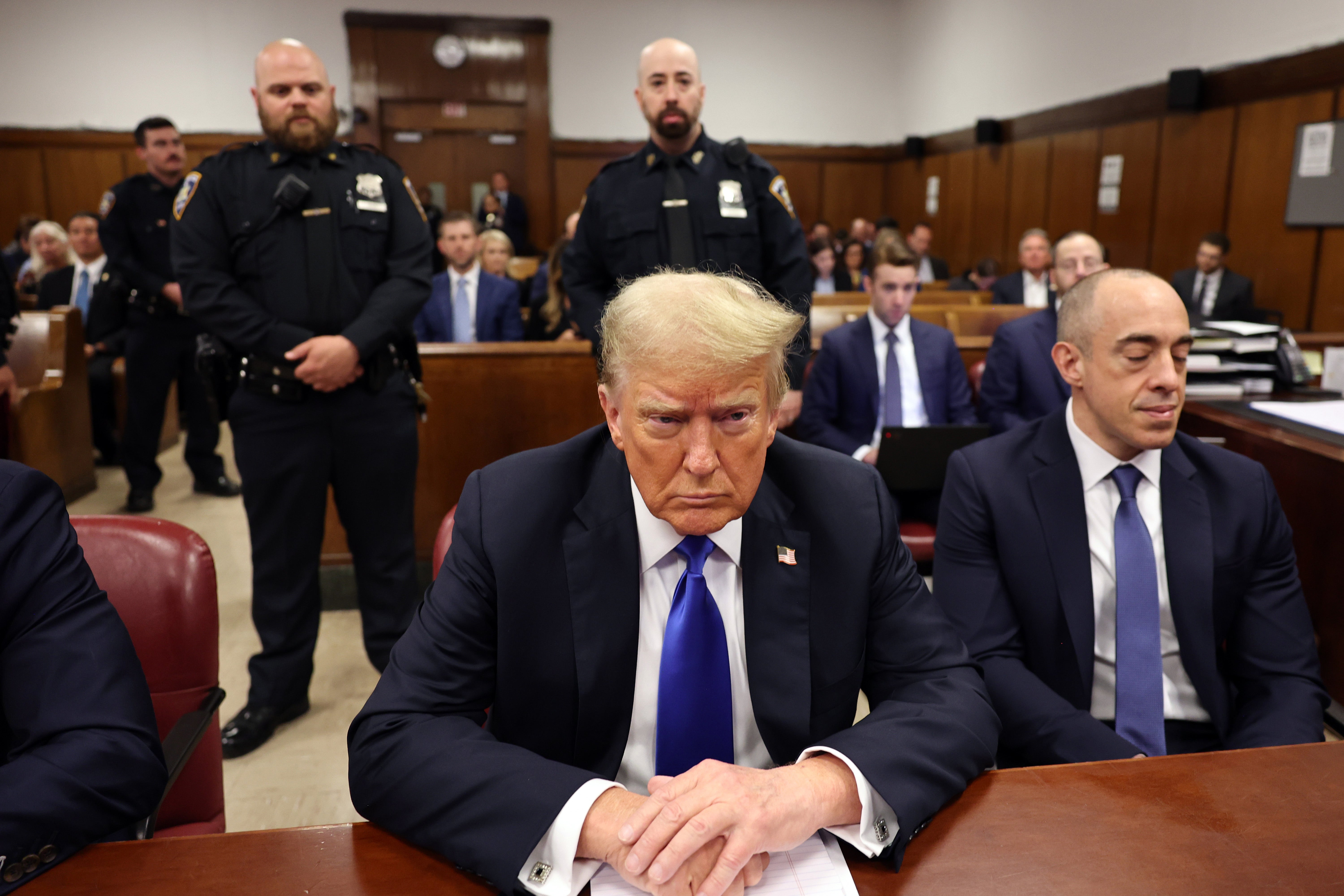What happens now that a convicted felon has won the presidency?
Now that Trump has secured a second term in the White House, he could theoretically make history as the first president to run the country from a prison cell
Your support helps us to tell the story
From reproductive rights to climate change to Big Tech, The Independent is on the ground when the story is developing. Whether it's investigating the financials of Elon Musk's pro-Trump PAC or producing our latest documentary, 'The A Word', which shines a light on the American women fighting for reproductive rights, we know how important it is to parse out the facts from the messaging.
At such a critical moment in US history, we need reporters on the ground. Your donation allows us to keep sending journalists to speak to both sides of the story.
The Independent is trusted by Americans across the entire political spectrum. And unlike many other quality news outlets, we choose not to lock Americans out of our reporting and analysis with paywalls. We believe quality journalism should be available to everyone, paid for by those who can afford it.
Your support makes all the difference.Earlier this year, Donald Trump made history by becoming the first former president ever convicted of a crime.
Now, after soaring to victory in the 2024 election against Kamala Harris, he has made history again: by becoming the first convicted felon elected to the nation’s highest office.
On May 30, Trump was convicted in New York of 34 felony counts of falsifying business records in order to conceal a $130,000 hush money payment to adult film star Stormy Daniels in the days before the 2016 election, in order to silence her about an alleged sexual encounter one decade earlier.
Judge Juan Merchan delayed his sentencing until after the November 5 election but could still hand down jail time to Trump – potentially paving the way for an unprecedented situation where the president of the US is running the country from a prison cell.
So what happens now?
At this point, Trump is still obligated to continue complying with the legal system. He’s currently scheduled to face sentencing on November 26 in New York for his hush money scandal, but there is a chance he’ll be able to skate. Judge Juan Merchan has until November 12 to decide if he’ll toss the conviction out in light of the Supreme Court’s presidential immunity ruling.
If Merchan doesn’t toss the conviction, Trump’s lawyers will likely try to delay the sentencing to buy themselves time to appeal his ruling. Even if the judge sentences Trump, he may not sentence him to prison, but give him a less restrictive punishment to account for the fact that he is the president.
In the US Constitution, there are no restrictions barring a convicted felon from seeking or winning elected office, even if that ultimately means becoming president and running the country from prison.
But the Constitution also offers no explanation for what should happen in that scenario.

As a highly litigious individual, Trump is likely to appeal whatever sentence Judge Merchan hands down.
But, he will not be able to use the powers of the presidency to pardon himself – and in turn spare himself from prison – because the New York case involves state charges.
“The state and federal systems in the United States are completely separate,” Steve Duffy, a jury consultant at Trial Behavior Consulting, told The Independent prior to the hush money trial verdict earlier this year.
“The only person who could pardon him would be the governor of New York – who is exceedingly unlikely to do that,” Duffy added.
Assuming Democratic Governor Kathy Hochul does not take such a step, a legal brawl is likely to break out to determine whether there is a way for the commander-in-chief to wriggle out of serving time.

The feud could end up all the way at the Supreme Court – a nine-justice court consisting of three Trump appointees.
If, after exhausting all legal avenues, Trump still finds himself unable to avoid jail, it could pave the way for calls for his third impeachment or for attempts to remove him from office via the 25th Amendment.
Should that fail and he really does find himself serving as president from a jail cell, Trump would quickly find that there are many duties and trappings of the role he would simply not be able to fulfill while incarcerated.
In his federal cases in Florida and Washington DC — relating to classified documents he kept at Mar-a-Lago and the Capitol riot — Trump, once he’s president, can simply fire Special Prosecutor Jack Smith and shut down the investigations.
The viewing of classified materials would create an obvious national security conflict. And traveling abroad to meet fellow world leaders at summits or on diplomatic missions would obviously also be out of bounds.
Trump’s RICO case in Georgia — which accuses him and co-defendants of working to undermine the 2020 election — may also be in trouble once he takes office.
That case is on hold as an appeals court is weighing whether or not Fulton County District Attorney Fani Willis continues to prosecute. Willis allegedly had a relationship with a man who she hired to work on the Trump case. A ruling in that case isn’t expected until next year, likely after Trump takes office.
Join our commenting forum
Join thought-provoking conversations, follow other Independent readers and see their replies
Comments